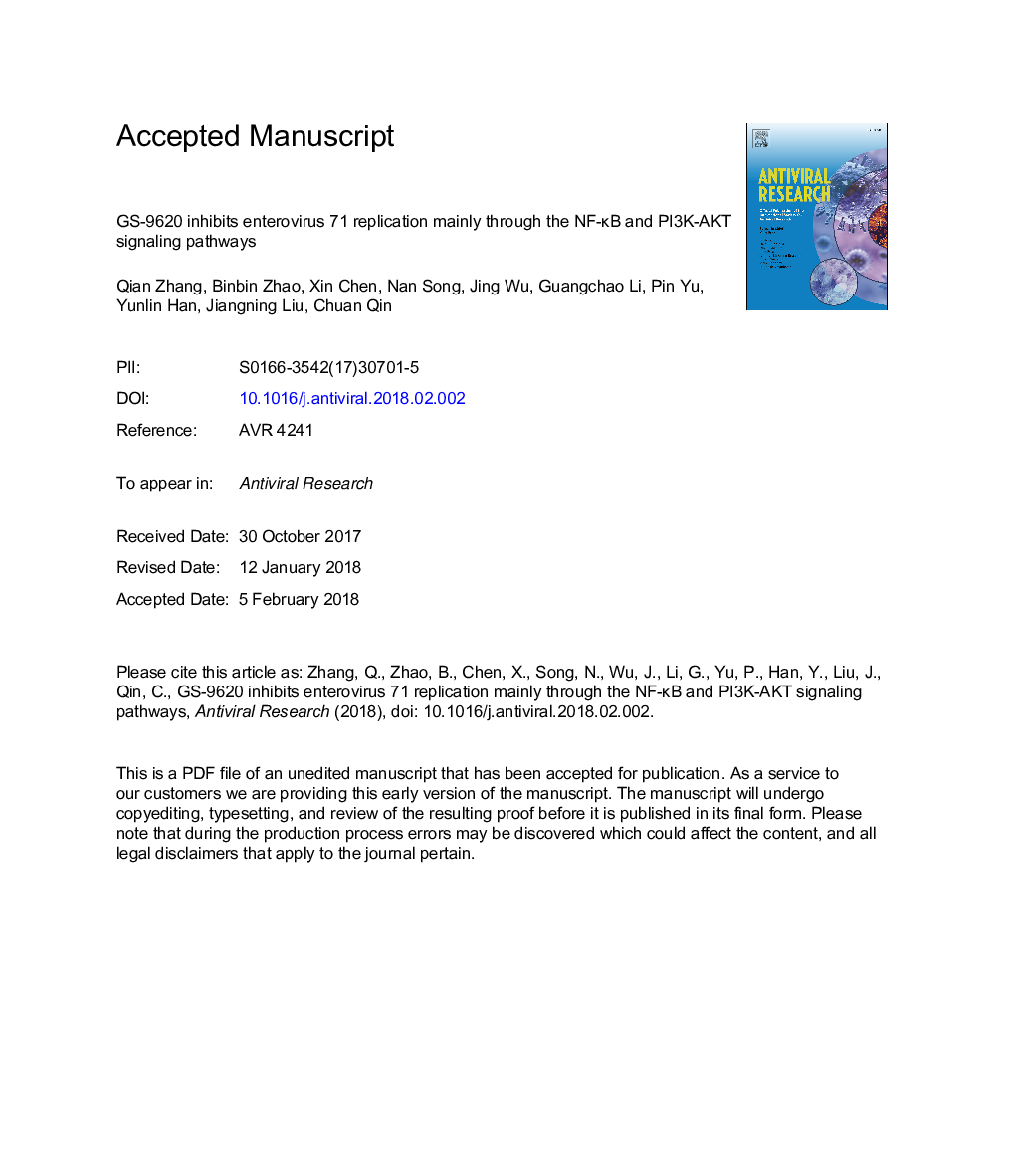| Article ID | Journal | Published Year | Pages | File Type |
|---|---|---|---|---|
| 8523243 | Antiviral Research | 2018 | 34 Pages |
Abstract
Human enterovirus 71 (EV71) is the second most common cause of hand, foot, and mouth disease (HFMD), which can occur as a severe epidemic especially among children under 5-years old. New and improved treatment strategies to control EV71 infection are therefore urgently required. The heterocyclic compound GS-9620, a potent and selective agonist of Toll-like receptor 7 (TLR7), has been reported to activate plasmacytoid dendritic cells (pDCs), and suppress HBV as well as HIV replication. In this study, we indicated that GS-9620 also could inhibit EV71 replication in the mouse model of EV71 infection. With three-days treatment after EV71 infection, the levels of proinflammatory cytokines/chemokines, like IFN-α, IFN-γ and MCP-1, were sharply reduced in serum compared to those without treatment. Furthermore, GS-9620 activated TLR7 in the limb muscle cells, which stimulated the NF-κB and PI3K/AKT signaling pathways. When NF-κB or PI3K/AKT inhibitors were used, the antiviral effect of the GS-9620 was impacted. Overall, our data implied GS-9620 probably activates NF-κB and PI3K/AKT signaling pathways to clear the virus.
Keywords
Related Topics
Life Sciences
Immunology and Microbiology
Virology
Authors
Qian Zhang, Binbin Zhao, Xin Chen, Nan Song, Jing Wu, Guangchao Li, Pin Yu, Yunlin Han, Jiangning Liu, Chuan Qin,
